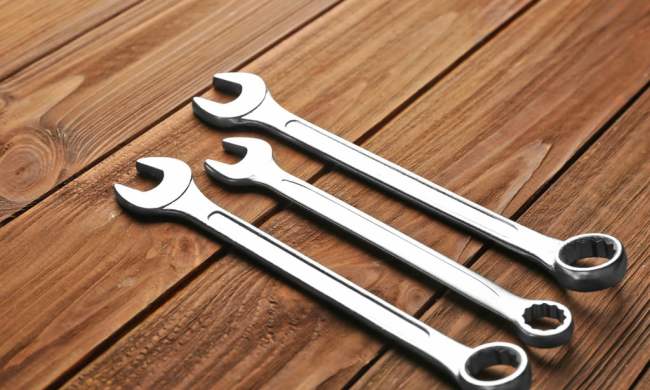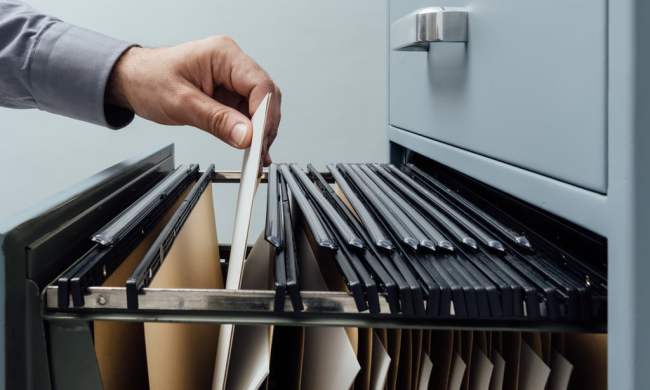Offices are hectic environments, even when they are running smoothly. Vendors are coming and going and there are round-the-clock meetings. There are bills to pay and events to coordinate. These are all but a few of the duties that an office manager has to plan for daily.
An effective office manager will possess administrative, planning, and analytical skills. However, no matter how good your skills are, there are always ways to take your abilities to the next level. If you’re trying to figure out how to be the best office manager, follow this advice.
Office manager tips and tricks
Develop gatekeeper systems
Office managers are often the most sought out people in the building. That’s because they’re the ones ordering supplies, organizing meetings, managing budgets, and putting out many other daily figurative fires that pop up. To be productive and effective in your duties as an office manager, you can’t have an open-door policy because your time is too valuable. There are a couple of ways to bottleneck and regulate the flow of questions and requests that barrage you daily.

Develop a ticketing system
There’s a reason that IT departments in large organizations utilize ticketing systems. They create a buffer between the in-progress work and the inflow of new projects. You can prioritize tasks much more effectively with a ticketing system since you’re not wasting time on verbal requests or back-and-forth email correspondence. There’s a lot of subscription-based help-desk ticketing system software that you can get up and running in a day.
Get an assistant
If it’s within the company budget, hiring an assistant is as good, if not better, than a ticketing system. Instead of people filling out an electronic form, they will contact your assistant instead, and they can prioritize tasks accordingly, giving you even more time. The great thing about a real person helping you out is that they can take on some of the smaller tasks for you.
Delegate to junior employees
If an assistant nor a ticketing system isn’t in the budget, you can always delegate tasks to junior administrative professionals in the office. For instance, all supply requests can go through person X, and every conference room reservations go through person Y. Just make sure that everyone in the office is clear with these systems and procedures.

Organization is critical
As the office manager, it’s your job to ensure everything is in its place and running smoothly. You must take charge and define where people and things live in the building for that to happen. Office organization isn’t necessarily just from an operations standpoint, but for employee safety as well. Labels, signs, cubbies, cabinets, and folders will quickly become you’re best friend.
Being organized is also critical for your daily work routine. Be sure to utilize calendars, timers, do-to lists, or whatever it takes to ensure maximum productivity. There’s a lot of free and paid productivity apps out there that will help.
Set and prioritize goals
Whatever tools you use to help with your productivity, it’s important to set daily achievable goals for yourself. You’ll probably have a daily to-do list of at least a dozen items, but make sure you prioritize at least three that you can do in a single day.
Goal setting shouldn’t just be for yourself. As an office manager, you should have goals for the building as a whole. These can be smaller short-term goals, such as increasing employee interaction by having a quarterly mixer. Or, you can have bigger long-term goals for the office, like taking steps to become a certified green workplace. Taking the initiative and setting goals for the office as a whole will reassure your superiors that you take charge and own your domain.
Be a people person
Offices are hives of people with varying beliefs and personalities. The two people who are relied upon the most to keep everyone happy are the office and HR managers. Although the office manager handles more day-to-day business operations and not so much employee relations like the HR manager, the two still work together to make sure everything is running smoothly. If you don’t like people, you’ll have a hard time as an office manager.
Have clear communication
When interacting with the said people above in daily business, you must use clear communication. Communicating clearly is essential when delegating tasks, dealing with outside vendors and customers, and explaining the steps to achieve goals within the office. Clear communication is also a crucial time-saving tool. When you say everything you need to in an initial email or phone call, there is no need for time-consuming back and forth communication.
Office managers are the glue that holds the building and its employees together. An excellent office manager is resourceful and has many different skill sets. However you approach managing your office, just make sure you set yourself up for success by doing what works best for you.



